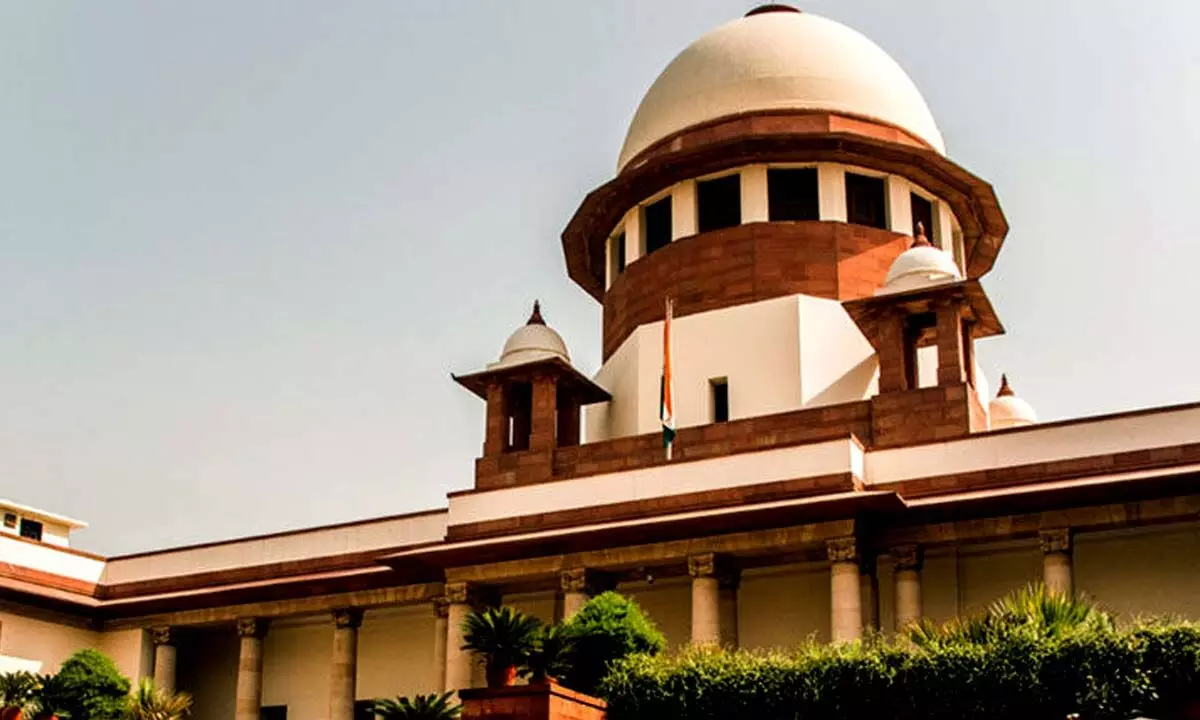Live
- MIXING FRUITS AND CULTURE
- Shakira to give her Lamborghini Urus to a lucky fan
- Sheraton Hyderabad Hotel Hosts a Joyful Fruit Mixing Event
- Mastering AI for workplace success
- A Million Lamps
- Eat to live, not live to eat
- Spirituality is extraordinary greed
- Bejan Daruwalla’s horoscope
- ICC’s arrest warrants call for accountability
- Author’s intellection key to autobiography
Just In
India does not have a statutory sentencing policy till date: Supreme Court

Supreme Court of India
The Supreme Court has observed that India does not have a statutory sentencing policy till date and while imposing sentence, the courts take aggravating and mitigating circumstances of a case into consideration.
New Delhi: The Supreme Court has observed that India does not have a statutory sentencing policy till date and while imposing sentence, the courts take aggravating and mitigating circumstances of a case into consideration.
In a recent judgement, a bench of Justices Abhay S Oka and Sanjay Karol while hearing a criminal appeal, reduced the sentence imposed on the appellant from 5 years to 3 years in the interest of justice.
The special leave petition was filed against an order of the Allahabad High Court in 2019, confirming the decision of the trial court rendered in 1987 sentencing Pramod Kumar Mishra for 5 years rigorous imprisonment under Section 307 IPC (attempt to murder).
In appeal, the Supreme Court was considering whether the sentence imposed by the trial court and as upheld by the high court is just and proper.
Attempt to commit murder is a punishable offence, the punishment for which is up to 10 years of imprisonment and if the act committed has caused hurt to the person, then punishment may extend to life imprisonment and fine or both.
The apex court noted that India does not have a sentencing policy till date and in the absence of such guidelines in India, the courts go by their own perception about the philosophy behind the prescription of specified penal consequences for a particular crime.
Referring to a precedent, it said that courts have a primary duty to delicately balance the aggravating and mitigating factors and circumstances in which a crime has been committed. It noted that 39 years have passed since the date of offence and the other accused persons were also acquitted in the case.
"There are no criminal antecedents of the appellant that have been brought on record. Further, from the record, it cannot be said that the appellant acted in a premeditated manner, whatsoever," the Supreme Court said.
"The appeal is partly allowed …The appellant is directed to undergo the remaining period of his sentence," it ordered while reducing the sentence to 3 years of rigorous imprisonment, adding a fine of Rs 50,000.

© 2024 Hyderabad Media House Limited/The Hans India. All rights reserved. Powered by hocalwire.com






